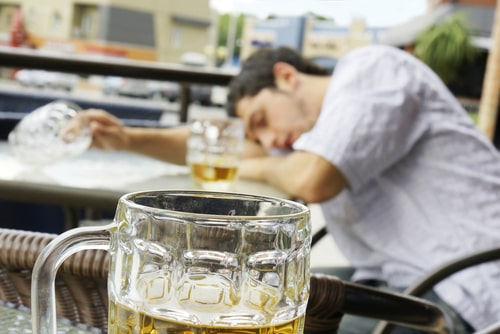Warn Your College Freshman About Campus Hazing Incidents This Fall
 A common feature of many college campus organizations is hazing activities that introduce new members into a school’s fraternities and sororities. While these activities are harmless for most students most of the time, hazing often involves copious amounts of alcohol. Combined with students under 21 years old who have little experience drinking and no adult supervision, hazing can end in disaster. If you are a parent of a child who has been injured or killed in a campus hazing incident, you may be wondering if you can take legal action. Read on to learn more and then schedule a free meeting with a Michigan campus hazing injury attorney.
A common feature of many college campus organizations is hazing activities that introduce new members into a school’s fraternities and sororities. While these activities are harmless for most students most of the time, hazing often involves copious amounts of alcohol. Combined with students under 21 years old who have little experience drinking and no adult supervision, hazing can end in disaster. If you are a parent of a child who has been injured or killed in a campus hazing incident, you may be wondering if you can take legal action. Read on to learn more and then schedule a free meeting with a Michigan campus hazing injury attorney.
Is Hazing Legal?
“Hazing” is a term for the kind of difficult, embarrassing activities that college juniors and seniors often make freshmen and sophomores endure before they are accepted as part of an organization. Although some universities have decided to prevent hazing activities because of their potential dangers, in and of itself, hazing is not illegal as long as it does not involve illegal behaviors.
The problem with so many kinds of hazing, however, is that many of the behaviors are illegal for everyone involved. For example, the most common type of hazing - forcing younger coeds to drink alcohol until they are willing to do something dangerous or embarrassing - could be illegal on a number of levels. Both the underage drinkers and the adults providing the alcohol are breaking the law. Further, any activities that are sexual or physical in nature could be grounds for criminal sexual assault or battery charges. Unfortunately, hazing can get much stranger and more violent, and in cases like these, students can be seriously injured.
Common University Hazing Injuries
Left unsupervised by competent adults, the ideas that young adults come up with to torment each other as part of a brotherhood-building activity can range from bizarre to horrific. Some common hazing activities and their potential dangers include, but are not limited to:
-
Branding skin with a hot iron, causing permanent scarring
-
Forced alcohol consumption, causing alcohol poisoning and unconsciousness or death
-
Beating, slapping, kicking, or other forms of physical abuse, causing bruising, concussions, or bone fractures
-
Public nudity, leading to charges for public indecency
-
Exposure to extreme weather, causing hypo- or hyperthermia
-
Unwanted sexual stimulation, leading to sexual assault or rape
In addition to the stress, violence, and trauma these behaviors can inflict on younger college students, they can also cause serious and sometimes irreversible physical damage.
Call a Grand Rapids College Hazing Lawyer
A young adult’s poor decisions during a moment of intoxication and peer pressure should not define them for the rest of their lives. If your child was involved in a hazing incident and has been seriously injured, get help from a Kent County, MI campus injuries attorney John D. Tallman, PLC, Attorney at Law. Call our conveniently located East Beltline offices today at 616-361-8850 to schedule a free, confidential consultation at your earliest convenience. We are also available to meet at your home or in a hospital if necessary.
Source:
https://hazingprevention.org/students








